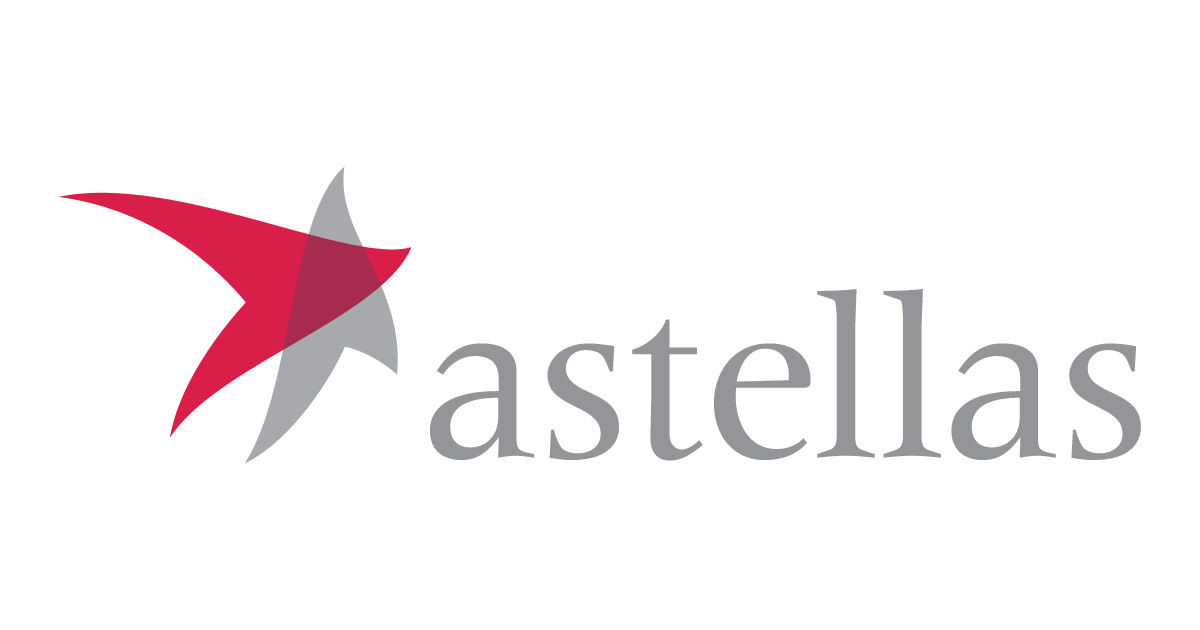预约演示
更新于:2025-03-17
JAK x JAK3
更新于:2025-03-17
关联
44
项与 JAK x JAK3 相关的药物作用机制 JAK3抑制剂 [+1] |
在研机构 |
原研机构 |
最高研发阶段批准上市 |
首次获批国家/地区 美国 |
首次获批日期2023-06-23 |
作用机制 JAK1抑制剂 [+3] |
在研适应症 |
最高研发阶段批准上市 |
首次获批国家/地区 日本 |
首次获批日期2019-03-26 |
作用机制 JAK1抑制剂 [+2] |
在研机构 |
原研机构 |
非在研适应症 |
最高研发阶段批准上市 |
首次获批国家/地区 美国 |
首次获批日期2012-11-06 |
661
项与 JAK x JAK3 相关的临床试验NCT06698822
A Phase 2 Trial to Assess Safety and Efficacy of Tofacitinib 2% Cream in the Treatment of Cutaneous T-cell Lymphoma (CTCL), Stages IA, IB, and IIA
To study the safety and effectiveness of tofacitinib 2% cream in treating early-stage CTCL.
开始日期2025-05-06 |
申办/合作机构- |
NCT06873945
A PHASE 3, EXTERNAL AND SYNTHETIC PLACEBO-CONTROLLED RANDOMIZED STUDY WITH DOSE-UP FOR NON-RESPONDERS TO INVESTIGATE SAFETY AND EFFICACY OF RITLECITINIB 50 MG AND 100 MG ONCE DAILY IN ADULT AND ADOLESCENT PARTICIPANTS 12 YEARS OF AGE AND OLDER WITH ALOPECIA AREATA
The purpose of the study is to learn about the safety and effects of the study medicine (called ritlecitinib) for the treatment of alopecia areata. Alopecia areata is a disease that causes hair loss on the scalp, face, and areas of the body.
Ritlecitinib is approved in many countries at a dose of 50 mg (milligram) taken by mouth once a day for the treatment of patients 12 years and older with severe alopecia areata. This study will look at both the 50 mg dose and a 100 mg dose.
This study is seeking participants who:
* Are 12 years of age or older
* Have a diagnosis of alopecia areata
* Have lost 50% or more of the hair on their scalp
* Do not have any other conditions that causes hair loss
* Are willing to stop all other treatments that they may be taking for alopecia areata
About 550 participants will take part in in this study.
Participants will be chosen by chance, like drawing names out of a hat, to receive 1 of 2 different amounts of ritlecitinib (50 mg and 100 mg) taken by mouth once daily.
The 2 doses of ritlecitinib in this study will be compared to each other and also to data from previous studies. This will help to see if the 100 mg dose of ritlecitinib is safe and effective.
People will be in this study for about 13 months. During the study, participants will need to visit the study site up to 9 times. Participants will undergo various tests and procedures such as:
* alopecia areata assessment,
* physical examinations,
* hearing tests,
* blood tests,
* x-ray,
* ECG (electrocardiogram),
* photographs of the scalp and eyes. Participants will also be asked to complete questionnaires about their alopecia areata.
Ritlecitinib is approved in many countries at a dose of 50 mg (milligram) taken by mouth once a day for the treatment of patients 12 years and older with severe alopecia areata. This study will look at both the 50 mg dose and a 100 mg dose.
This study is seeking participants who:
* Are 12 years of age or older
* Have a diagnosis of alopecia areata
* Have lost 50% or more of the hair on their scalp
* Do not have any other conditions that causes hair loss
* Are willing to stop all other treatments that they may be taking for alopecia areata
About 550 participants will take part in in this study.
Participants will be chosen by chance, like drawing names out of a hat, to receive 1 of 2 different amounts of ritlecitinib (50 mg and 100 mg) taken by mouth once daily.
The 2 doses of ritlecitinib in this study will be compared to each other and also to data from previous studies. This will help to see if the 100 mg dose of ritlecitinib is safe and effective.
People will be in this study for about 13 months. During the study, participants will need to visit the study site up to 9 times. Participants will undergo various tests and procedures such as:
* alopecia areata assessment,
* physical examinations,
* hearing tests,
* blood tests,
* x-ray,
* ECG (electrocardiogram),
* photographs of the scalp and eyes. Participants will also be asked to complete questionnaires about their alopecia areata.
开始日期2025-03-19 |
申办/合作机构 |
NCT04871191
Salvage Therapy for Patients with Inadequate Response to Standard of Care Therapy in Granulomatosis with Polyangiitis
The purpose of this study is to identify the most promising therapeutic strategy for patients with granulomatosis with polyangiitis and inadequate response to standard of care therapy. It will evaluate the efficacy to induce remission of three different salvage strategies including: a combination of rituximab with addition of a conventional disease-modifying antirheumatic drugs (either methotrexate, azathioprine or mycophenolate mofetil, but preferentially methotrexate); tocilizumab; or tofacitinib.
开始日期2025-03-01 |
100 项与 JAK x JAK3 相关的临床结果
登录后查看更多信息
100 项与 JAK x JAK3 相关的转化医学
登录后查看更多信息
0 项与 JAK x JAK3 相关的专利(医药)
登录后查看更多信息
2,158
项与 JAK x JAK3 相关的文献(医药)2025-06-01·Journal of Translational Autoimmunity
Tofacitinib downregulates JAK1 and JAK3 on human intestinal monocytes and macrophages without affecting dendritic cells phenotype or function
Article
作者: de Andrés, Beatriz ; Arranz, Eduardo ; Martín-Muñoz, Álvaro ; Barrio, Jesús ; Garrote, José A ; García-Alonso, Francisco Javier ; Bernardo, David ; De Prado, Ángel ; Romero, Alejandro ; Fernández-Salazar, Luis ; Arribas-Rodríguez, Elisa ; Velayos, Benito
Background:
Ulcerative colitis (UC) is an inflammatory disorder of the gastrointestinal tract. Although Tofacitinib, which inhibits the JAK1 and JAK3 signalling pathway, is approved to treat patients with UC, its specific mechanism of action remain elusive. Given the central role that conventional dendritic cells (cDC) elicit in gut homeostasis, we hypothesised that Tofacitinib acts modulating cDC function in UC.
Methods:
Human biopsies were obtained from colon of controls, and patients with UC (active and quiescent). Lamina propria mononuclear cells (LPMC) were ex-vivo cultured in the presence/absence of Tofacitinib. The specific effect elicited over human intestinal cDC, monocytes and macrophages was assessed by flow cytometry. cDC were also enriched following Tofacitinib conditioning in order to assess its effect over naïve T-cells.
Results:
Several human intestinal cDC, monocyte and macrophage subsets can be found in the human colon, with these cells being more similar between controls and patients with qUC referred to patients with aUC. Following ex-vivo culture, Tofacitinib downregulated JAK1 expression on intestinal monocytes from patients with both active and quiescent UC. As for macrophages, JAK1 was decreased on patients with active UC while JAK was downregulated on macrophages from patients with quiescent disease. Tofacitinib did not modulate the phenotype or function of human intestinal cDC.
Conclussion:
Tofacitinib does not modulate the phenotype and function of human intestinal cDC in UC. On the contrary, it displays a differential capacity to modulate intestinal monocyte and macrophage phenotype. Future studies should address whether it also translates into a differential function of these cells.
2025-04-01·CLINICAL IMMUNOLOGY
Novel janus kinase 3 inhibitor ritlecitinib suppresses T and B cell responses to prevent acute cardiac allograft rejection in mice
Article
作者: Xu, Jian ; Hui, Jialiang ; Deng, Wenfeng ; Xia, Renfei ; Yan, Ziyan ; Wang, Yuchen ; Miao, Yun ; Zeng, Wenli ; Liu, Rumin ; Mo, Liqian ; Liao, Tao ; Shi, Xiaoyi
Acute rejection is the main contributor to early allograft failure. Current immunosuppressive regimens have shortcomings, such as toxicity and minimal inhibitory effects on B cells. Hence, developing novel, effective, and selective anti-acute rejection drugs is crucial. Therefore, this study aimed to investigate the inhibitory effect of ritlecitinib (PF-06651600), a new janus kinase 3 inhibitor, on T and B cells, as well its preventive effects on acute allograft rejection. A murine cardiac transplantation model coupled with cell culture- and immunohistochemistry-based techniques was used. In vitro assays demonstrated that ritlecitinib inhibits naïve CD4+ T cell differentiation into T helper (Th)1 and Th17 cells, reduces relative inflammatory cytokines, and suppresses CD4+ and CD8+ T cell proliferation. Furthermore, ritlecitinib inhibited B cell activation and differentiation and antibody production. In vivo experiments revealed that ritlecitinib significantly prolongs allograft survival, decreases serum donor-specific antibody immunoglobulin G levels, alleviats allograft damage, and reduces C4d deposition and T, B, and plasma cell infiltration in allografts. Moreover, B and plasma cell percentages and counts were significantly decreased in recipient spleen, lymph nodes, bone marrow, and blood. Overall, ritlecitinib prevented acute rejection in cardiac transplantation by inhibiting T and B cells, suggesting its potential as a novel clinical immunosuppressant.
2025-04-01·ANTI-CANCER DRUGS
Dual inhibition of TYK2 and PD-L1 boosts immune response in triple negative breast cancer
Article
作者: Xiang, Huali ; Tu, Binfeng ; Feng, Xin ; Huang, Yajuan ; Chen, Linjing
Recent studies have shown that Janus Kinase inhibitors can enhance the tumor therapeutic effect of immune checkpoint inhibitors. However, it remains to be studied whether TYK2 selective inhibitors can enhance the therapeutic effect of small molecule PD-L1 inhibitors in triple-negative breast cancer (TNBC). We verified the efficacy of the combination of the selective TYK2 inhibitor Deucravacitinib and the small molecule inhibitor of PD-L1, INCB086550, in two TNBC animal models: a syngeneic mouse model (4T1 with humanized PD-L1) and a peripheral blood mononuclear cell (PBMC)-humanized model (MDA-MB-231). Following that, we explored the regulation of immune cell activity in tumors by the combined treatment using flow cytometry. Finally, we validated the expression of genes related to the regulated immune cells through reverse transcription-PCR. Both animal models demonstrated that the addition of a TYK2 inhibitor to a PD-L1 inhibitor significantly enhanced the antitumor capabilities of mice with good safety profiles. The combined therapy significantly elevated the counts of T, B, and natural killer cells while concurrently diminishing myeloid-derived suppressor cells in the syngeneic model. Similarly, in the PBMC-humanized model, this therapy markedly augmented progenitor-like and proliferative precursor-like CD8 T cells, while effectively diminishing exhausted and terminally differentiated CD8 T cell populations. This enhanced antitumor effect is associated with the modulation of antitumor immune-related gene expression by the combined therapy. The combination of TYK2 inhibitors and immune checkpoint inhibitors is a potentially effective strategy for treating TNBC.
439
项与 JAK x JAK3 相关的新闻(医药)2025-03-13
关注并星标CPHI制药在线
近日,三生国健发布公告,公司为进一步聚焦核心优势资产,优化业务结构及资源配置,拟与三生制药签署《许可协议》,拟将公司612项目和708项目独家授予给沈阳三生。
该两项目都是三生国健自主研发的抗肿瘤临床产品。612是一款新型抗HER2人源化单克隆抗体;708则是靶向PD-1/TGF-β的双特异性抗体,目前两项目都处在临床前阶段。
根据协议,三生国健将获得1.02亿元的首付款,以及里程碑付款和15%的管线销售额作为后续权利金。
从2023年至今,三生国健几乎剥离了所有非自免领域管线,并将全力聚焦自免领域产品开发。三生国健的战略改变,再次让我们看到药企对自免领域的执着。
如今,在肿瘤领域陷入红海存量竞争后,自免正在成为药界“诸神之战”。自免疾病是一类以局部或全身性异常炎症免疫反应为特征的炎症免疫性疾病,包括类风湿关节炎、系统性红斑狼疮、多发性硬化、强直性脊柱炎、银屑病、克罗恩病、自身免疫性肝病、特应性皮炎等多种疾病。这类疾病患者群体庞大,病程长,市场需求可观。
那么,海内外药企在这一赛道有哪些主要布局?
“自免三强”的布局
从2024年全球畅销药排位赛上来看,赛诺菲、艾伯维、强生可以称之为“自免三强”。
赛诺菲的度普利尤单抗(Dupixent,dupilumab),在2024年夺得“自免药王”宝座。这是一款由赛诺菲和再生元联合开发的IL-4Rα靶向人源化单抗,其通过与白介素-4(IL-4)和IL-13受体复合物共有的IL-4Rα亚基特异性结合而抑制IL-4和IL-13的信号传导,进而抑制2型炎症反应。
2017年3月,度普利尤单抗首次在美获批,用于中重度特应性皮炎的治疗,是全球首 款获批的IL-4Rα单抗药物。2019年6月,度普利尤单抗再次获FDA批准,用于18岁及以上慢性鼻窦炎伴鼻息肉(CRSwNP)患者的辅助维持治疗,成为首 款治疗CRSwNP的生物制剂。
此后,度普利尤单抗还陆续获批了哮喘、结节性痒疹、慢性自发性荨麻疹、嗜酸性食管炎等。今年2月,FDA还受理了度普利尤单抗用于治疗成人大疱性类天疱疮 (BP) 的补充生物制品许可申请 (sBLA) 的优先审查,PDUFA日期为2025年6月20日。如果获得批准,度普利尤单抗将成为美国第一个也是唯一一个治疗BP的靶向药物。
广泛的适应症布局催生巨额收益。2017年其销售额仅为2亿欧元,但2019年,销售额就已经翻了超10倍,达到21亿欧元。2022年,全年营收更是高达82.93亿欧元。2023年,度普利尤单抗销售额达到116亿美元,同比增长33%。2024年,更是以141.79亿美元的销售额超越艾伯维的阿达木单抗和强生的乌司奴单抗,成为新一代“自免药王”。
除度普利尤单抗外,赛诺菲在自免领域的在研产品还有BTK抑制剂Tolebrutinib(多发性硬化症)和Rilzabrutinib(免疫性血小板减少症);IL-33单抗Itepekimab(慢性阻塞性肺病);用于哮喘及伴有慢性鼻窦炎的IL-13/TSLP双抗Lunsekimig;用于溃疡性结肠炎的TL1A单抗TEV’574等。
艾伯维作为自免领域曾经的霸主,随着王牌产品阿达木单抗(修美乐)迎来专利到期,其在自免领域的市场逐渐萎缩。好在有自免双星利生奇珠单抗(risankizumab,Skyrizi)和乌帕替尼(upadacitinib),正在带领艾伯维走向新的辉煌。
利生奇珠单抗是一种白细胞介素-23(IL-23)抑制剂,IL-23是一种参与炎症过程的细胞因子,与许多慢性免疫介导疾病有关。利生奇珠单抗通过与IL-23 p19亚基结合来选择性阻断IL-23,进而阻断炎症因子释放。
2019年,利生奇珠单抗首次获FDA批准,用于斑块状银屑病的治疗。目前,已斩获5项适应症:斑块状银屑病、银屑病关节炎、克罗恩病、泛发性脓疱型银屑病以及红皮病型银屑病。用于溃疡性结肠炎的适应症申请正在审评中。对于利生奇珠单抗,艾伯维依然采取了专利丛林策略,开展的相关临床研究多达60项。2024年,利生奇珠单抗的销售额高达117.18亿美元,同比增长50.9%。《Nature》预测该产品将进入2025年全球畅销榜前5名,约达137亿美元。
乌帕替尼是一种选择性JAK抑制剂,对JAK1显示出的抑制效力大于对JAK2、JAK3和TYK2。2019年,乌帕替尼获FDA批准上市,目前已获批适应症有特应性皮炎、类风湿关节炎、活动性银屑病关节炎、溃疡性结肠炎、克罗恩病、活动性放射学阴性中轴型脊柱关节炎(nr-axSpA)、活动性强直性脊柱炎(AS)等。用于治疗成年巨细胞动脉炎(GCA)的新适应症已提交上市申请。
2024年,乌帕替尼全球销售额达到59.71亿美元,同比增长50.4%。
为了重回自免顶流,在2024年,艾伯维达成了7笔自免BD项目。
强生在自免领域布局由来已久。其重磅产品乌司奴单抗、古塞奇尤单抗、英夫利昔单抗、戈利木单抗等一直带来源源不断的财富。
乌司奴单抗(Stelara)是一款靶向IL-12和IL-23共有的p40亚基的单抗。2009年1月,乌司奴单抗首次在欧盟获批上市。目前已获批7项适应症:成人中重度斑块状银屑病;≥12岁青少年中重度斑块状银屑病;儿童(≥6岁)中重度斑块状银屑病;4)成人活动性银屑病关节炎(PsA);成人中重度活动性克罗恩病(CD);成人中重度溃疡性结肠炎(UC);幼年活动性PsA(≥6岁儿童)。
2024年,乌司奴单抗的全球销售额为103.6亿美元。由于其核心专利在2023年已到期,目前正受到生物类似药的围攻,市场有可能进一步萎缩。
古塞奇尤单抗是一种白介素23(IL-23)抑制剂,它不仅可以直接结合IL-23,还能够定位到主要产生IL- 23 的 CD64+ 炎症细胞,从而有效阻断炎症信号通路。
古塞奇尤单抗已获批治疗中/重度斑块状银屑病、活动性银屑病关节炎、中度至重度活动性溃疡性结肠炎。此外,其治疗中度至重度活动性克罗恩病的新适应症上市申请也已获FDA受理。2024年,古塞奇尤单抗销售额达到了36.70亿美元,同比增长16.6%。2024年,艾伯维还进行了多笔BD交易,来扩大自己在自免领域的布局。
自免赛道上的大药企,除了“自免三强”外,还有罗氏、诺华等新生力量。在这一需求巨大的蓝海赛道上,国内玩家更是不甘落后。
国内头部药企竞相布局
从国内企业的布局情况来看,中国目前还没有出现自免领域的巨头公司,并且只专注于该领域的公司数量也相对较少,除三生国健外,恒瑞医药、荃信生物、智翔金泰、康方生物、康诺亚等值得关注。
恒瑞医药在自免领域已有17条管线进入临床。管线涉及IL-17A、URAT1、MASP-2、IL-4Rα和TSLP等靶点,用于治疗斑块状银屑病、强直性脊柱炎、高尿酸血症、IgA肾病、特应性皮炎、慢性鼻窦炎伴鼻息肉和哮喘等。
荃信生物经过多年的深耕,目前已在自免赛道形成多个创新品种的产品管线,适应症覆盖银屑病、特应性皮炎、强直性脊柱炎、系统性红斑狼疮、哮喘、炎症性肠病等,是目前国内在自身免疫性疾病及过敏性疾病方面获最多临床试验申请(IND)批准的药企之一。去年3月,荃信生物以自免第一股的身份成功在港交所挂牌上市。
智翔金泰的自免管线覆盖IL-17、IL-4R、TSLP、IFNAR1等靶点。其研发的1类新药赛立奇单抗(一款重组全人源抗IL-17单克隆抗体)在去年8月获CDE批准,打破了IL-17A单抗药物被外资垄断的局面。另外,其在研的狂免双抗、抗TSLP双抗均为全球首创。
自免领域,不论从患者规模、用药周期还是从渗透率来讲,都有着未被挖掘的市场需求,同时一个靶点赛道甚至能覆盖百种疾病类型,因此,自免领域向来出大药。海内外,自免正逐步取代肿瘤,成为全球医药市场增长的核心引擎,也日益成为全球大小药企必争之地,自免领域的市场活力正在被快速激活。
主要参考资料:
1.https://www.prnewswire.com/news-releases/abbvie-submits-regulatory-applications-to-fda-and-ema-for-upadacitinib-rinvoq-in-giant-cell-arteritis-302195344.html.
2.https://www.jnj.com/media-center/press-releases/tremfya-guselkumab-demonstrates-superiority-versus-stelara-ustekinumab-in-phase-3-crohns-disease-program.
3.《免疫疾病用药深度二:踏时代浪潮,自免药物乘风而起》,中信建投证券研究,2024年07月08日。
【2025CPHI思享会预告】
扫码领取CPHI & PMEC China 2025展会门票
来源:CPHI制药在线
声明:本文仅代表作者观点,并不代表制药在线立场。本网站内容仅出于传递更多信息之目的。如需转载,请务必注明文章来源和作者。
投稿邮箱:Kelly.Xiao@imsinoexpo.com
▼更多制药资讯,请关注CPHI制药在线▼
点击阅读原文,进入智药研习社~
优先审批引进/卖出申请上市上市批准
2025-03-13
·研发客
//
• 强生口服多肽icotrokinra展现出重塑中重度斑块状银屑病治疗标准的潜力;
• 多家中国公司也展示各自在研产品治疗中重度斑块状银屑病的研究成果;
• BMS尝试突破突围,寻求氘可来昔替尼更广阔的适应症;
• Q32 Bio治疗斑秃的核心产品被医生看好,但投资人并不买账;
• 特应性皮炎治疗领域将迎来OX40抑制剂新生力军。
随着自免领域的研发热度持续升温,一众参赛选手开始亮出阶段性研究成果。在刚刚落幕的2025年美国皮肤病学会(AAD)年会上,或许能窥见这个赛道未来将诞生哪些“重磅炸弹”。
银屑病可能是今年大会最受关注的治疗领域之一。其中,强生的IL-23受体(IL-23R)靶向拮抗多肽icotrokinra站上舞台C位,不仅显著疗效,对比BMS的TYK2变构抑制剂氘可来昔替尼也不落下风,展现出重塑中重度斑块状银屑病治疗标准的潜力。来自诺诚健华、益方生物和翰森制药/荃信生物等中国公司的新药也纷纷闪亮登场。
氘可来昔替尼四面受敌,不过BMS没有退缩,而是转战银屑病关节炎、红斑狼疮等其他疾病领域。此外,Q32 Bio、礼来、恒瑞医药等竞相布局斑秃市场,安进/协和麒麟和赛诺菲则在特应性皮炎上争夺“first-in-class”的宝座。
大获全胜
作为银屑病巨头,强生在该领域的新药研发经验毋庸置疑。与此前推出的英夫利西单抗、戈利木单抗、乌司奴单抗、古塞奇尤单抗等均为注射液不同,icotrokinra(JNJ-2113)采用更为便利的口服给药方式。
早在去年11月,强生就宣布icotrokinra在关键性3期研究ICONIC-LEAD中取得积极结果。此次大会公布了该研究的完整结果,显示该产品每日一次在12岁及以上中重度斑块状银屑病患者中显著的皮肤清除率与良好安全性。
数据显示,第16周时,icotrokinra组65%的患者达到IGA 0/1,即皮肤症状清除或几乎清除,50%患者达到PASI 90,即银屑病面积与严重程度指数改善至少90%。在第24周时,PASI 90应答率提升至65%,74%达到IGA 0/1,近半数患者实现皮肤完全清除(46%达IGA 0,40%达PASI 100)。
另外,icotrokinra还在Ⅲ期ICONIC-ADVANCE 1/2研究中,在第16周达到IGA 0/1与PASI 90的共同主要终点,并在所有关键次要终点中显著优于氘可来昔替尼。
氘可来昔替尼是过去10余年来首个获批治疗中重度斑块状银屑病的口服疗法,其他创新疗法以注射用的单抗为主。现在,这种治疗格局可能很快就要被打破。
据悉,强生将启动首个斑块状银屑病头对头研究ICONIC-ASCEND,以证明口服给药的icotrokinra相较于注射用生物制剂乌司奴单抗的优效性。
神仙打架
在BMS和强生后面奋起直追的还有多家中国公司。其中,诺诚健华与益方生物都在本次大会亮出各自开发的口服TYK2抑制剂治疗中重度斑块状银屑病的Ⅱ期研究成果。
其中,诺诚健华ICP-488经12周治疗后,每天一次6mg和9mg剂量组的PASI 75应答率分别为77.3%和78.6%,PASI 90应答率分别达到36.4%和50.0%,sPGA 0/1(即皮损完全清除或基本清除)应答率分别为70.5%和71.4%。
益方生物D-2570经12周治疗后,18mg、27mg、36mg剂量组的PASI 75应答率分别为90.0%、85.4%和85.0%,PASI 90应答率分别为75.0%、70.7%和77.5%,PASI 100应答率分别为40.0%、39.0%和50.0%,sPGA 0/1应答率分别为82.5%、80.5%和87.5%。
单从数值来看,ICP-488的PASI 90应答率在第12周时与icotrokinra第16周时旗鼓相当,而D-2570则更胜一筹。益方生物在新闻稿中表示,D-2570的疗效数据优于已上市的同类TYK2抑制剂,并且在效果上可与IL-17A、IL-23等抗体生物药相媲美。
在注射疗法方面,翰森制药与荃信生物合作开发的长效疗法HS-20137也值得关注。这是一款靶向IL-23的人源化IgG1单抗,翰森制药于2024年4月获得其独家权益。
Ⅱ期临床数据显示,HS-20137在中重度斑块状银屑病患者中起效迅速,200mg每八周给药一次剂量组治疗16周后PASI 75、PASI 90应答率分别为92.3%和76.9%,该比例在第20、24和28周时分别达到84.6%、89.7%和87.2%。试验还设置了200mg每十二周给药一次剂量组,16周时PASI 100高达40%。
BMS的守与攻
眼下,全球银屑病市场获批疗法众多,针对TNF-α、IL-12/23、IL-23、IL-17A、IL-36等靶点的新药层出不穷,生物类似药来势汹汹,新一代的口服、长效疗法也试图杀出重围。
在这种背景下,氘可来昔替尼的处境可谓前有狼后有虎。不过BMS并未坐以待毙,而是在更广阔的适应症中找寻出路。
本次大会上,BMS首度公布了氘可来昔替尼治疗活动性银屑病关节炎(PsA)成人患者的Ⅲ期POETYK PsA-2(IM011-055)试验结果,证实了其在改善关节及皮肤症状、提升患者报告生活质量方面的潜力。
数据显示,治疗组在16周后ACR20(疾病体征和症状至少改善20%)应答比例达到54.2%,显著高于安慰剂组的39.4%。此外,研究还达到了多个关键次要终点,并展现良好的耐受性和安全性特征。
除了POETYK PsA-2,氘可来昔替尼另一项针对PsA的Ⅲ期研究POETYK PsA-1也在去年12月达到了主要终点和关键次要终点。这些研究结果均表明,口服氘可来昔替尼有可能成为PsA患者的首个TYK2抑制剂。
此外,该药还在开展治疗红斑狼疮的全球Ⅱ期PAISLEY CLE研究,同样可能帮助这款口服TYK2抑制剂摆脱“银屑病专药”的标签。
下一位斑秃克星
作为仅次于雄激素性脱发的第二大脱发类疾病,斑秃市场潜力巨大。随着礼来的巴瑞替尼、辉瑞的利特昔替尼和太阳制药的deuruxolitinib等JAK抑制剂相继获批,这个领域的参与者也在加紧步伐。
比如Q32 Bio。在今年2月经历大幅裁员、重组并砍掉肾脏管线后,这家Biotech正全力推进其核心资产bempikibart用于中重度斑秃的Ⅱ期研究。bempikibart是一款IL-7/TSLP双功能受体拮抗剂,通过阻断IL-7和TSLP信号重新调节适应性免疫功能。
在本次AAD大会上,Q32 Bio公布了2a期斑秃试验SIGNAL-AA的结果,bempikibart用于重度及极重度斑秃患者,第24周SALT评分(头皮脱发)显著改善,且停药后疗效持续。尽管只有24周的给药,多名患者在36周的随访期间获得持续的反应,甚至超过55周。
目前,bempikibart的开发计划进展顺利,开放标签扩展研究将于2025年上半年启动,SIGNAL-AA Part B研究预计于2025年上半年开始给药,关键数据2026年上半年公布。
康涅狄格州皮肤病医生Brett King博士评论道:“重症患者在治疗24周后甚至停药数周仍显示疗效,这一现象非常引人注目。若bempikibart的活性(包括诱导长期缓解的潜力)及安全性在后续试验中得以验证,它有望改变斑秃的治疗范式。”
不过这一数据并未说服投资人,消息公布后,Q32 Bio股价已连续两日下跌7%以上。部分分析师认为bempikibart在斑秃中的疗效可能不及现有疗法。
礼来的JAK1/2抑制剂巴瑞替尼则瞄准了12岁至18岁的严重斑秃青少年这一群体。大约40%的斑秃患者在20岁前首次发病。
在AAD上公布的3期BRAVE-AA-PEDS研究结果显示,在第36周接受每日一次口服巴瑞替尼 4mg和2mg治疗后,患者头皮、眉毛和睫毛的头发再生得到了临床意义上的改善。42.4%的患者接受巴瑞替尼4mg治疗后,第36周头皮头发覆盖率达到80%以上。
如果巴瑞替尼在这一年轻群体中获批,将直接对垒辉瑞的JAK3/TEC抑制剂利特昔替尼,这是全球首款获批同时用于治疗12岁及以上青少年及成人重度斑秃患者的创新药物。
此外,恒瑞医药也携其JAK1抑制剂硫酸艾玛昔替尼片的Ⅲ期成果加入斑秃战场。
数据显示,该药在第8周即可改善成人重度斑秃患者症状,4mg和8mg剂量组24周时分别有34.9%和40.6%的患者达到SALT评分≤20,显著优于安慰剂组。在治疗核心期和延长期间,达到SALT评分≤20的患者比例持续增加。
OX40抑制剂在AD中的突破
目前,全球范围内尚未有OX40抑制剂获批上市,而安进/协和麒麟的rocatinlimab及赛诺菲的amlitelimab,是自免领域临床进度较快的两个选手。
在本次AAD大会上公布的Ⅲ期IGNITE试验的最新数据显示,rocatinlimab有望争夺特应性皮炎(AD)领域“first-in-class”的宝座。
在为期24周的研究中,rocatinlimab达到了共同主要终点和所有关键次要终点,两种剂量均显示具有统计学意义的疾病活动性降低。高剂量组中42.3%的患者湿疹面积和严重程度指数评分较基线降低≥75%(EASI 75),低剂量组中36.3%的患者达到EASI 75。
这支持了rocatinlimab作为特应性皮炎一种新治疗选择的潜力。安进计划在ASCEND试验中进一步探索该药超过24周的效果,并在ASTRO和ORBIT试验中评估其在青少年患者中的作用。
尽管取得了积极的成果,专家和分析人士预计,rocantinlimab的应用将被降至二线治疗领域,而且它可能必须面对来自赛诺菲OX40L单抗amlitelimab的竞争。后者也在本次大会上海报展示了针对中重度AD患者的STREAM-AD与RIVER-AD研究结果。
RIVER-AD是一项单臂长期扩展Ⅱ期研究。此次大会首次公布了该研究的中期分析结果,主要针对Ⅱb期STREAM-AD试验中第24周未达到EASI-75或IGA 0/1应答的患者,统一予以amlitelimab 250mg Q4W,并于治疗28周评估有效性和安全性。
结果显示,试验组和安慰剂组患者进入这项扩展研究时的EASI评分与STREAM-AD研究基线时的EASI评分相比,平均降低了35.8%和18.3%;治疗第28周,EASI评分分别较基线下降了83.4%和85.2%;同时,治疗28周时的EASI-75、EASI-90、IGA 0/1应答率与STREAM-AD研究第24周的应答率相当。
这一数据展现了amlitelimab在特应性皮炎中的潜力。它提供了一种独特的作用机制,可以帮助使过度活跃的免疫系统正常化,并在不消耗T细胞的情况下恢复免疫平衡。
编辑 | 姚嘉
yao.jia@PharmaDJ.com
总第2360期
访问研发客网站,深度报道和每日新闻抢鲜看
www.PharmaDJ.com
临床3期申请上市临床成功
2025-03-10
·美通社
治疗第
16 周时,颂狄多治疗组患者的 ACR和 PASI应答率显著高于安慰剂组,且患者报告生活质量有更明显改善
与安慰剂和阿普米司特相比,颂狄多耐受性良好,安全性特征与既往临床表现一致
上海
2025年3月10日
/美通社/ -- 近日,百时美施贵宝公布了POETYK PsA-2(IM011-055)这一关键III期试验的积极结果。该试验旨在评估颂狄多
®
(氘可来昔替尼)用于治疗活动性银屑病关节炎成人患者的疗效和安全性。POETYK PsA-2 试验达到了主要终点,即治疗16周后,
颂狄多
治疗组患者的ACR20(疾病体征和症状至少改善20%)应答比例显著高于安慰剂组(分别为:54.2% vs. 39.4%;p=0.0002)。16周治疗期间,
颂狄多
的整体安全性特征与此前在银屑病关节炎II期临床试验及中重度斑块状银屑病III期临床试验中的表现一致。
这些最新数据将于2025年3月7日至11日在美国佛罗里达州奥兰多举行的美国皮肤科学会(AAD)年会上以最新突破性摘要(#66894)形式公布,这也是POETYK III期临床试验在银屑病关节炎(PsA)领域的首次发声。
"由于银屑病关节炎的复杂性、多面性和异质性特征,临床上对于安全、有效的口服治疗药物仍存在着巨大的需求。"瑞典医学中心/普罗维登斯圣约瑟夫医疗中心风湿病学研究主任、华盛顿大学医学院临床教授、医学博士Philip Mease表示,"这些研究结果特别令人振奋,它证实了
颂狄多
在改善关节及皮肤症状、以及提升患者报告生活质量方面的潜力。基于这些数据以及其良好的耐受性和安全性特征,
颂狄多
有望成为银屑病关节炎患者重要的治疗新选择。"
此外,
颂狄多
治疗在第16周还达到了有关银屑病关节炎疾病活动度的多个关键次要终点,在临床体征和症状、关节外表现以及患者报告结局方面均表现出改善。在接受
颂狄多
治疗的患者中,达到PASI 75(银屑病面积和严重程度指数改善至少75%)应答的比例显著高于安慰剂组。此外,与安慰剂组相比,
颂狄多
治疗组患者报告的健康评估问卷残疾指数 (HAQ – DI)较基线值的改善也更为显著(分别为:−0.32 vs. −0.21;p=0.0013)。
在POETYK PsA-2试验中,未发现新的安全性信号。在安慰剂组、
颂狄多
组和阿普米司特组中,分别有54.7%、62.8%和73.3%的患者报告了不良事件(AE),严重不良事件(SAE)的发生率分别为1.0%、1.9%和3.8%。安慰剂组、
颂狄多
组和阿普米司特组中分别有1.3%、2.2%和10.5%的患者因不良事件导致停药。阿普米司特作为安全性参考组被纳入 PsA-2 试验,未计划对其疗效进行正式统计学比较。
"这些令人振奋的新数据表明,
颂狄多
作为全球首款口服TYK2抑制剂,有望解决银屑病关节炎患者巨大的未满需求。"百时美施贵宝免疫学早期与晚期开发副总裁兼高级全球项目负责人、医学博士Edgar Charles表示,"此外,这些研究结果的公布,不仅让我们对
颂狄多
在风湿性疾病治疗领域的能力更有信心,也彰显着我们始终如一的承诺,那就是为免疫介导疾病患者开发创新药物。"
百时美施贵宝将与主要研究者合作,在今年即将举行的医学大会上公布POETYK PsA III期项目的更多数据,并期待就这些结果与卫生监管部门展开讨论。
颂狄多
已在全球多个国家和地区获批,用于治疗成年中重度斑块状银屑病患者。
百时美施贵宝由衷感谢所有参与 POETYK PsA-2临床试验的患者和研究人员。
本资料中涉及的信息仅供参考,请遵从医生或其他医疗卫生专业人士的意见或指导。
注
: 颂狄多银屑病关节炎适应症尚未获批
关于
颂狄多银屑病关节炎
III
期试验项目
颂狄多银屑病关节炎(PsA)III期项目包括两项III期、多中心、随机、双盲、安慰剂对照试验,旨在评估该药物在治疗18岁及以上患有活动性银屑病关节炎的成人患者的疗效和安全性:POETYK PsA-1(IM011-054;NCT04908202)和 POETYK PsA-2(IM011-055;NCT04908189)。
POETYK PsA-1共入组约670名活动性银屑病关节炎患者,这些患者此前未接受过生物制剂类改善病情抗风湿药物(bDMARD)治疗。POETYK PsA-2共入组约730名活动性银屑病关节炎患者,这些患者未接受过bDMARD治疗,或既往接受过肿瘤坏死因子-α(TNF-α)抑制剂治疗。两项试验均包含为期52周的治疗期,其中前16周为安慰剂对照治疗期,之后的第16周至第52周为重新分组和持续活性治疗期。POETYK PsA-2试验还包括一个阿普米司特安全性参考组。
两项试验的主要终点均为治疗第16周时达到ACR20(疾病体征和症状至少改善20%)的受试者比例。在第16周时还评估了与银屑病关节炎疾病活动度相关的关键次要终点。
这两项试验中完成52周治疗的患者有机会参与开放标签扩展研究。
关于银屑病关节炎
银屑病关节炎(PsA)是一种慢性、免疫介导的异质性疾病,具有多种肌肉骨骼和皮肤表现,包括炎症性关节炎、附着点炎(肌腱或韧带附着于骨骼处的炎症)、指(趾)炎(手指和脚趾关节的肿胀)以及银屑病皮肤和指甲病变。多达30%的银屑病患者会发展为银屑病关节炎。除了因银屑病关节炎导致的身体功能丧失、疼痛和疲劳外,该疾病还会显著影响患者的心理和情绪健康。此外,银屑病关节炎患者还面临更高的严重共病风险,包括心血管疾病、代谢综合征、抑郁和焦虑。
关于
颂狄多(氘可来昔替尼)
颂狄多(氘可来昔替尼)是一种具有独特作用机制的口服、选择性酪氨酸激酶2(TYK2)变构抑制剂,也是一类新型小分子药物代表。它是首个正在进行多种免疫介导疾病临床研究的选择性TYK2抑制剂。百时美施贵宝的科学家们设计
颂狄多来选择性地靶向TYK2,从而抑制IL-23、IL-12和 I型干扰素(IFN)的信号传导,而这些细胞因子都是参与多种免疫介导疾病发病机制的关键细胞因子。
颂狄多通过与TYK2的调节结构域结合实现高度选择性,促成对TYK2及其下游功能的变构抑制。在生理浓度范围内,
颂狄多可选择性地抑制 TYK2。在治疗剂量下,
颂狄多不会抑制JAK1、JAK2或JAK3。
颂狄多已在全球多个国家和地区获批,用于治疗成年中重度斑块状银屑病患者。
临床3期临床结果临床成功临床2期
分析
对领域进行一次全面的分析。
登录
或

生物医药百科问答
全新生物医药AI Agent 覆盖科研全链路,让突破性发现快人一步
立即开始免费试用!
智慧芽新药情报库是智慧芽专为生命科学人士构建的基于AI的创新药情报平台,助您全方位提升您的研发与决策效率。
立即开始数据试用!
智慧芽新药库数据也通过智慧芽数据服务平台,以API或者数据包形式对外开放,助您更加充分利用智慧芽新药情报信息。
生物序列数据库
生物药研发创新
免费使用
化学结构数据库
小分子化药研发创新
免费使用


